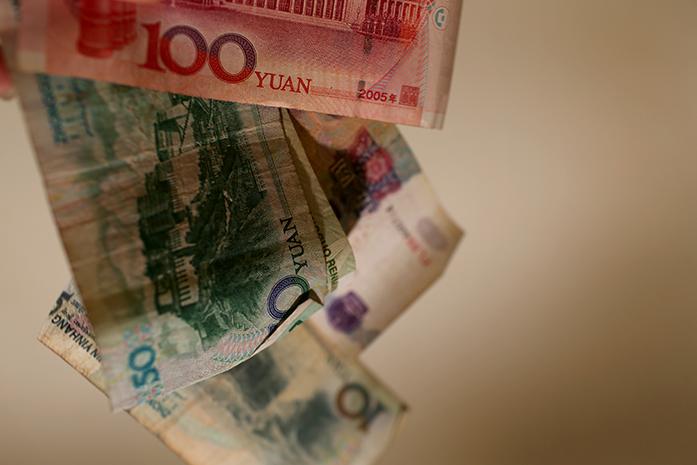How will the Chinese currency devaluation affect the lives of Chinese students?
By Zhao Li
[email protected]
In the face of a weak Chinese economy, the Chinese yuan has been devalued against the U.S. dollar, leaving the exchange rate to spike.
In June, 6.20 yuan turned into $1. However, one now needs around 6.40 in Chinese currency to convert into the same amount.
Though the difference may seem tiny, many Chinese students studying in the United States say the effect on their lives will be huge.
University of Iowa officials estimate the cost of tuition and living expenses for out-of-state students to amount to $37,618 for this academic year. Before the yuan decreased, it would have amounted to roughly 233,332 yuan. Now, with 6.4 yuan needed to equal $1, that number jumps to roughly 240,755 yuan. This means international students from China will pay roughly 3 percent more for their tuition just because of the exchange rate. This would be the equivalent of a tuition rate increase of more than $836 — just from a change of 0.2 yuan.
“One thing the devaluation of the yuan means is that the cost of everything that a Chinese person buys in the U.S. now costs more in yuan,” University of Iowa economics Professor John Solow wrote in an email.
“So if your parents are paying your tuition, it will cost them more in yuan to pay your U-Bill (even though your U-Bill doesn’t go up in dollars),” he said. “Same thing for your other living expenses.”
Molly Shen, a second-year UI Chinese student said she is a “shopaholic.”
She used to shop in the Coral Ridge Mall once a week, and she shops online whenever possible. She said she is a big fan of lipsticks and had more than 40 different kinds at home.
“Whenever I am in Sephora, I just cannot control myself,” she said. “I want to have all the cute lipsticks, so I buy whatever I like without any considerations. But this was all before the rising of exchange rate,” she said. “Now, I think a lot before I purchase everything. Is this thing really necessary? Do I really need this? I ask myself these questions before I make the decision and only buy those must-haves. And I have absolutely no wish to consume the luxury brands, since normal living expenses have already taken me so much more than before.”
Another Chinese junior, David Lin, who is a not a big “luxury” person and cares more about the cost efficiency of everything he buys, said the devaluation of Chinese yuan actually means the rising prices of all commodities to all the Chinese students who are sponsored by their families back home.
“My family offers me a fixed amount of Chinese yuan every year; however, now, with this devaluation happening, I will either need to buy cheaper products or to buy fewer things,” he said.
Lin also emphasized the furniture he’s getting for his new apartment.
“I chose some really qualified ones with my roommates at the end of last semester and decided to get them when we came back after the summer break,” he said. “But when we were back to Iowa City after three months, we just went for the cheaper ones, which does not seem very durable. But we have no choice.”












